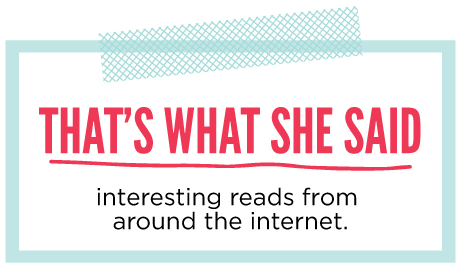reader submissions. It is an attempt to allow people to tell their
personal stories, in the hopes of bringing greater compassion to the
unique issues each of us face. If you would like to submit a story to
this series, click here. Today’s guest posts is by Addison Cooper.
I’ve been a social worker in foster care and adoption for the last
several years. A joyous part of my journey has been helping kids
finalize their adoptions out of foster care. Many of these kids are
older when their adoptions finalize and are able to express how happy
they are with their adoptive families; often they’re adopted by people
they’ve known for years. I remember one girl – adopted at age 12 – who
had lived unofficially with a family for several years before finally
being able to be adopted by them. She was so glad to be able to have the
last name of the man she viewed as a father. I’ve seen adoption be
joyous for kids. I’ve also seen adoptions be joyous for the families who
have struggled with infertility, pursued adoption out of a sense of
ministry, and in either case – stuck with the kids through hard times
and happy times. There are many, many happy stories in adoption.
What
I want to share, though, is that the happy stories ring the most true
when families are honest. I’ve struggled through interviews with
prospective adoptive parents who were brought to adoption because of
infertility, but had not grieved their infertility. I’ve had families in
these situations be firmly opposed to any contact (maybe even any
acknowledgement) of the child’s birth family. They were scared that
birth family involvement (of any members – birth parents, siblings,
grand parents) would in some way make their experience of parenting less
valid. Some were fearful that birth family members would be a bad
influence on their kids. Some were fearful that having birth family
contact would confuse their kids, or make their kids love them less.
For
some reason, openness in adoption became a strong personal focus of
mine in training. If I could say one thing to parents considering
adoption, it’d be this: Please make sure that you’re considering the
needs of the child as paramount. I probably need to explain that a bit.
Here’s what I mean:
There are lots of people in a child’s birth
family. Grandparents, siblings, parents, aunts, uncles, and family
friends all have some insight into and knowledge of the child’s history
and early life story. It’s true that some members of a child’s birth
family (especially in foster care adoptions) may have some difficult
situations going on in their life that make them unsafe for the child to
be around. But even if that’s the case, it doesn’t mean that all
members of the birth family are unsafe for contact. And it doesn’t mean
that –any– member of the birth family will be unsafe forever. Adoption
is bittersweet. It is redemptive. Joy comes, but it comes in the wake
of a sad situation. The children I’ve worked with have celebrated their
gain, of permanency, of family, of parents, of safety; but they also
have a sense of loss: of history, of family, of familiarity, and
sometimes of identity. Maintaining some contact with the birth family –
as far as it depends on you – can help mitigate the sense of loss that a
child might feel, while making you even more obviously their ally.
Most
of the parents I trained hadn’t really thought much about openness
before pursuing adoption. “What’s best for the child?” that’s a great
question to ask yourself, and the answer will vary from case to case.
The answer will always involve the adoptive parent at least exploring
the possibility, pros, and cons of contact with a particular person, at a
particular time. Even doing this research is a service to your child.
Don’t be scared!


